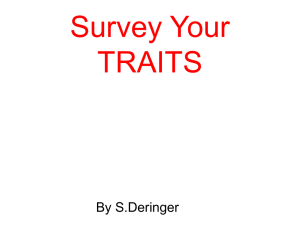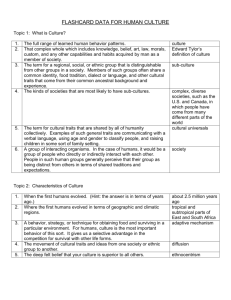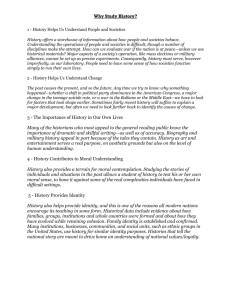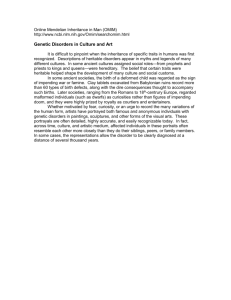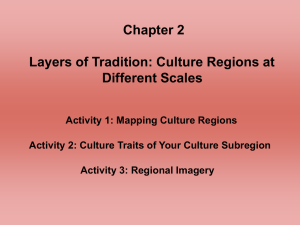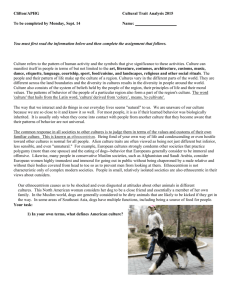Defining and Studying Minority Groups
advertisement
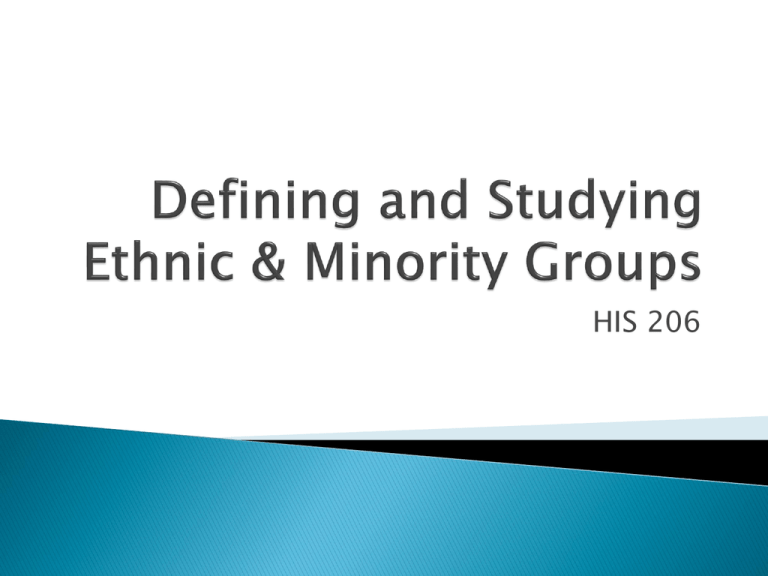
HIS 206 3 different theoretical perspectives: ◦ Functional theory – stable equilibrium between groups is the norm ◦ Conflict theory – competition for political & economic power between groups is the norm ◦ Interactionist theory – focus on symbolic interaction & social construction of reality 3 different ways of defining & analyzing minority groups: ◦ Distributive – studying how groups differ in life chances, income, education, occupation & pol. power ◦ Organizational – studying character & relations of organizations formed by groups ◦ Attitudinal (Social Psychology) – studying attitudes, beliefs & behaviors of group members to explain prejudice & intergroup action Functional – concentrates on forms & functions, assuming all groups react in same ways Cultural Relativist – concentrates on unique cultural content of groups, emphasizing differences between them Never easy, straightforward or consistent – changes over time & place ◦ Dependent on context ◦ Not simply numerical – majority may lack power relative to minority Sociology created by Herbert Spencer & others in late 1800s to study evolution of human societies ◦ Assumed human societies evolve as species do ◦ Used term “race” to refer to groups distinguished by both physical & cultural characteristics Subordinate segments of complex state societies Special physical or cultural traits held in low esteem by dominant segments of society Self-conscious units bound together by special traits members share & special disabilities which these traits bring Membership transmitted by rule of descent capable of affiliating succeeding generations even in absence of readily apparent traits By choice or necessity, tend to marry within group (endogamy) Identifiability – characteristics neither fixed nor self-evident, but rather social constructed Differential power – combination of total resources & their use Differential & pejorative treatment – various strategies employed by dominant group, depending on limitations on resources, relative power, & econ. usefulness of minorities ◦ ◦ ◦ ◦ ◦ Stereotyping Avoidance Discrimination Physical attack Extermination Group awareness – more limited in U.S. due to individualism Assignment of people to groups sometimes done by dominant group and sometimes by minority group Self-assignment often made for economic advantage Legal definitions difficult

